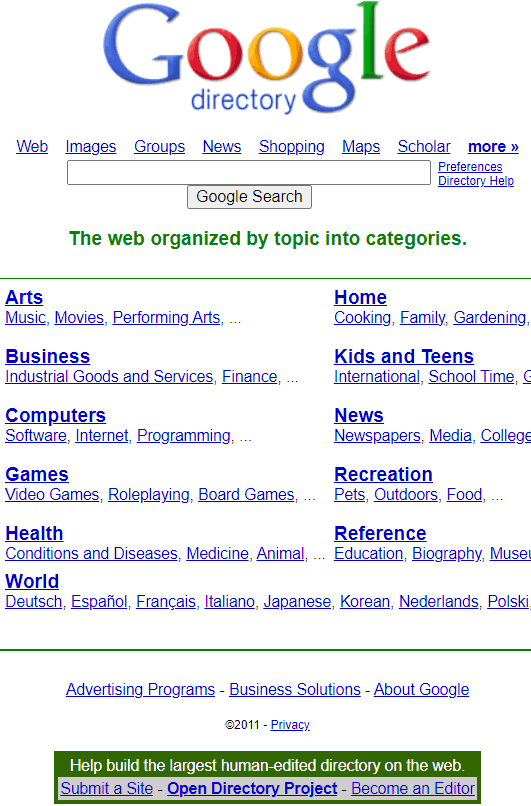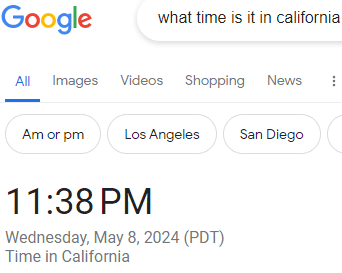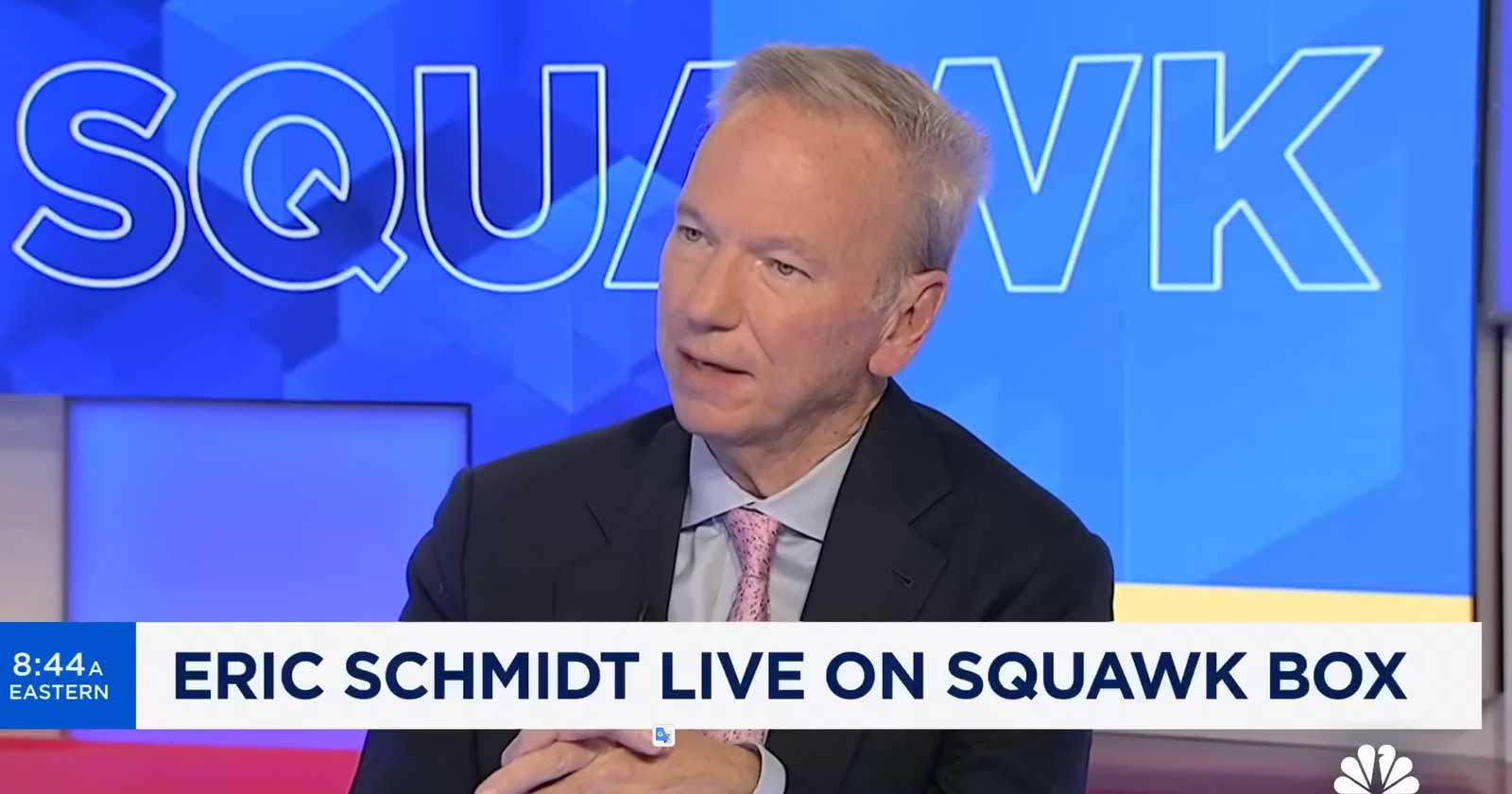Eric Schmidt, former CEO of Google, said in an interview that Google’s mission is to organize the world’s information, not to provide blue links. Schmidt’s pragmatic statements seem to describe a future where websites are unnecessary and advertising is increasingly effective.
Answers Without Links Is A Good User Experience?
The ex-CEO’s prediction of the future of Google may seems to contradict statements by Google’s current CEO that assert that search and the web will continue to coexist as well as by Danny Sullivan who has many times said that a healthy web ecosystem is important to Google.
There are many actions taken by Google in the past that indicate that Eric Schmidt’s prediction fit perfectly with how Google has ranked sites in the past.
The early days of the web were navigated not just by search engines but by curated web directories that served as starting places for Internet users to go find information, hopping from link to link in a hyperlinked Internet. The idea was that hyperlinks was how users could find information.
Google Search not only ranked webpages from web directories, Google itself hosted a version of DMOZ, an open source web directory that was curated by thousands of volunteers much like Wikipedia is maintained by volunteer editors today.

But a day came when Google stopped ranking directories and the reason given was that it was a better user experience show answers and not links to pages with more links (this event is likely archived somewhere on the WebmasterWorld forum, it happened a long time ago).
Then there are Google’s answers for flight tracking, package tracking, stock quotes, the time and weather information that has zero links.
Example Of An Answer Without Links

Eric Schmidt’s assertion that Google will take advantage of AI to show answers fits into Google’s design principle that showing answers is a good user experience if it fully satisfies the query.
The only difference between the old days and now is that Google is that AI has (mostly) unlocked the ability to show answers without linking to any websites.
So it’s not far-fetched that Google may decide that showing answers is a good user experience, there is precedence for that approach.
AI Is Underhyped
Schmidt put forward the idea that AI is not overhyped but in fact is underhyped.
He observed:
“I hate to tell you but I think this stuff is underhyped not overhyped. Because the arrival of intelligence of a non-human form is really a big deal for the world.
It’s coming. It’s here. It’s about to happen. It happens in stages. …the reason I’m saying it’s underhyped is you’re seeing the future of reasoning, the future of human interaction, the future of research, the future of planning is being invented right now.
There’s something called infinite context windows, which means that you can — it’s like having an infinite short-term memory, which I certainly don’t have, where you can basically keep feeding it information and it keeps learning and changing.”
Given that AI has been described by Google’s current CEO as on the same level as the invention of fire, it might seem hyperbolic to claim that AI is underhyped. But Schmidt has a point in that our current age of AI is at the beginning stages and that more advanced discoveries are already coming through the door at a pace of innovation perhaps never seen before in human history.
The part about “infinite context windows” may be a reference to Infini-Attention, a recent discovery that allows a language model to hold startling amounts of data in its short term memory.
Eric Schmidt On The Future Of Search
The interviewer asked Schmidt about a future where AI answers questions without links to sources on the web.
The interviewer asked this question:
“In a world where the AI provides the answer, and doesn’t necessarily need to send you to 12 places where you’re going to go find it yourself… what happens to all of that?
Eric Schmidt answered:
“It’s pretty important to understand that Google is not about blue links, it’s about organizing the world’s information. What better tool than the arrival of AI to do that better.
Do you think you can monetize that? You betcha.”
See also: Why Google SGE Is Stuck In Google Labs And What’s Next
Will Answers Without Links Happen?
It has to be reiterated that Eric Schmidt (LinkedIn profile) is no longer the CEO at Google or Executive Chairman & Technical Advisor at Alphabet (for four years now). His opinions may not reflect the current thinking within Google.
However it’s not unreasonable to speculate that maybe he is saying out loud what those within Google cannot officially discuss.
The most solid information we have now is that Google Search will continue to have links but that Google (and others like Apple) are moving ahead with AI assistants on mobile devices that can answer questions and perform tasks.





![[SEO, PPC & Attribution] Unlocking The Power Of Offline Marketing In A Digital World](https://www.searchenginejournal.com/wp-content/uploads/2025/03/sidebar1x-534.png)